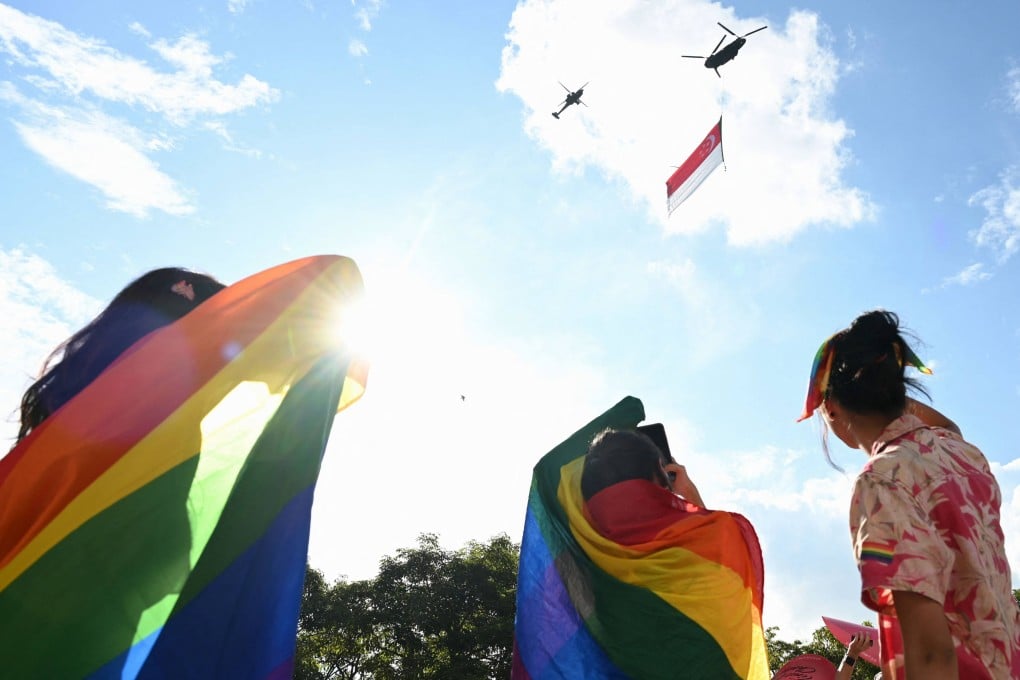Advertisement
This Year in Singapore: post-Covid life, gay sex ban ends, political renewal, crypto fallouts and more
- Singapore gets a new PM-in-waiting, ends most Covid-19 curbs and a colonial-era gay sex ban, and finds its footing amid multiple crypto implosions
- City state says its ‘back in business’ with major events and rebuilding as an aviation hub, even as some doctors voice concern about Covid complacency
Reading Time:3 minutes
Why you can trust SCMP

Dewey Simin Singapore
Much of the past year in Singapore has been marked by jubilation, exemplified by the Formula One Grand Prix roaring back to the city state in October following the lifting of most Covid-19 restrictions.
The year was also marked by other significant events such as the striking down of a colonial-era gay sex ban, while the ruling party consolidated its succession plan for continued stability amid a backdrop of a slowing global economy and a tumultuous global cryptocurrency market.
In March, the city state pushed through with its plan to live with the coronavirus, lifting an outdoor mask mandate and a rule that banned restaurants and bars from serving alcoholic drinks after 10.30pm.
Advertisement
On the night of the easing, loud cheers were heard across Singapore’s central business district and some bars even offered free beer.

One month later, the government dropped Covid-19 testing for fully vaccinated travellers, a move hailed as an “important milestone” as Singapore began to rebuild as a global aviation hub, even as other regional rivals such as Hong Kong remained torn.
Advertisement
Advertisement
Select Voice
Choose your listening speed
Get through articles 2x faster
1.25x
250 WPM
Slow
Average
Fast
1.25x